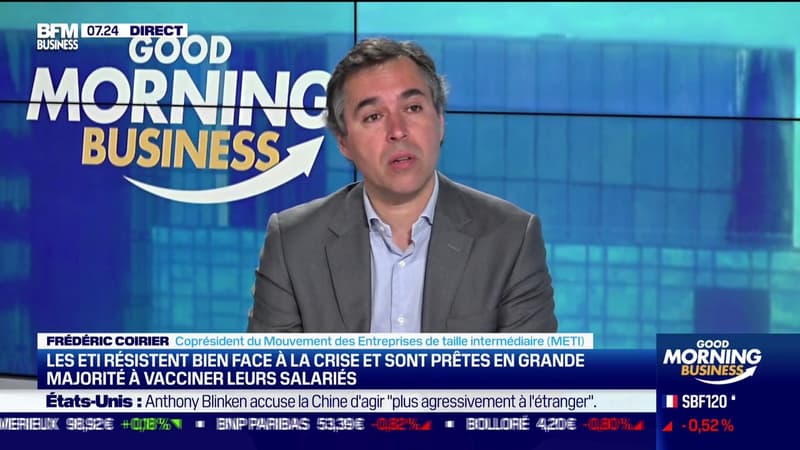“Reductions in production taxes have a return on investment,” says Frédéric Coirier, co-chair of the Movement of Medium-sized Enterprises (METI) in the group of good morning business this Monday. For the leader, the supply policy led by the government has paid off. “Collection has been increasing for several years,” he greeted, referring to a “bet on activity” and an “expansion of the tax base.”
But the executive, faced with a complicated equation for his 2024 budget, plans to put companies to work with a series of measures. Among them is the postponement for one year of the suppression of the contribution on the value added of companies (CVAE), a tax on production.
“When the government announced a first tax cut of 10,000 million euros, companies immediately invested,” he says.
Specific charges for high salaries
This postponement could also slow down France’s reindustrialization by maintaining “a gap” between France and its neighbors on production taxes. “This penalizes companies even before generating the result, since we are taxing production upstream of the result”, he adds. Therefore, he advocates a realignment “as quickly as possible” of France’s production taxes on its European competitors.
Another measure feared by the METI, the planning provided for the relief of charges beyond 2.5 times the minimum wage. For the co-president of the business movement, it would be a new “blow to the reindustrialization of the country that will not be done only with low wages.”
This provision is all the more questionable since it would widen the gap between France and its European competitors. Because if France is globally aligned with its neighbors in terms of the charges applied to low wages, it remains well above qualified professions. For the latter, “charging rates are 45% compared to 20% on average in Europe”, recalls Frédéric Coirier.
Source: BFM TV


